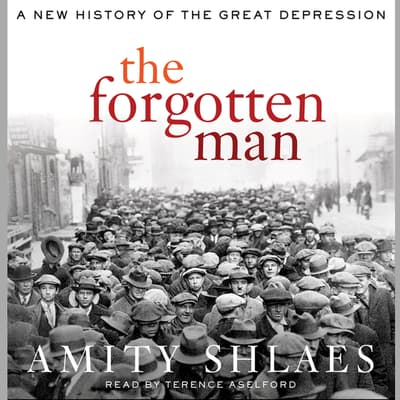


On the other hand, The Forgotten Man and its key arguments have been criticized by liberal Nobel Prize-winning economist Paul Krugman, among others. Novelist Mark Helprin praised the book, "Were John Kenneth Galbraith and Milton Friedman to spend a century or two reconciling their positions so as to arrive at a clear view of the Great Depression, this would be it.". "Amity Shlaes's book on the failure of the New Deal to revive the economy, The Forgotten Man, was widely read by Republicans in Washington." In February 2009 during the Senate confirmation hearing for Energy Secretary Steven Chu, Republican Senator John Barrasso waved a copy of the book and announced, "In these economic times, a number of members of the Senate are reading a book called The Forgotten Man, about the history of the Great Depression, as we compare and look for solutions, as we look at a stimulus package." Fred Barnes of the conservative Weekly Standard has called Shlaes one of the Republican Party's major assets. The Forgotten Man has been praised by Republican politicians such as Newt Gingrich, Rudolph Giuliani, Mark Sanford, Jon Kyl, and Mike Pence. Shlaes used the term forgotten man in the sense famous classical liberal thinker William Graham Sumner coined the term to refer to the middle class. The book argues that members of FDR's "Brain Trust", including Rexford Tugwell of Columbia University, had connections to the Soviets and their interest in central planning. Shlaes presents her arguments in part by telling stories of self-starters who showed what the free market could have accomplished without the New Deal.

The book begins with an anecdote of the 1937 recession, eight years after the Depression began, when Roosevelt adopted budget-balancing policies indistinguishable from the stereotype of what Hoover supposedly did. Shlaes praises the model offered by Wendell Willkie before the 1940 presidential election, where the New Deal would have been scaled back and business would have stepped in. Roosevelt pursued erratic policies that froze investment and failed to take the steps needed to stop the Depression, and that the New Deal extended the length of the Depression and had deleterious effects on individuals. The book criticizes Herbert Hoover and the Smoot-Hawley Tariff as exacerbating the Depression through government intervention.

The book is a re-analysis of the events of the Great Depression, generally from a free market perspective. The Forgotten Man: A New History of the Great Depression is a book by Amity Shlaes and published by HarperCollins in 2007.


 0 kommentar(er)
0 kommentar(er)
